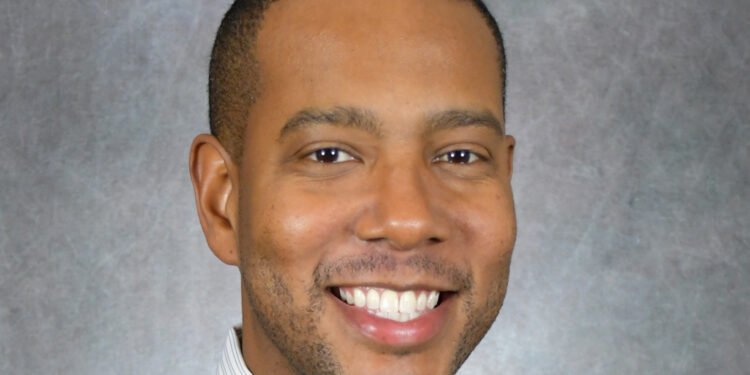The state Supreme Court has lifted its indefinite suspension against Henderson County Family Judge David Curlin, allowing him to return to the bench Tuesday.
The court issued its ruling on Friday afternoon.
His return to the bench Tuesday was confirmed by Jamie Neal, a public information specialist with the Administrative Office of the Courts.
“Judge Curlin’s suspension is dissolved and he will be back on the bench on Tuesday,” Neal wrote to the Hendersonian Friday.
Curlin was reached by phone Saturday by the Hendersonian. He declined to comment.
Curlin’s indefinite suspension to practice law was issued Sept. 29 and went into effect the next day.
The suspension came because Curlin failed to respond to charges and complaints from the Kentucky Bar Association, and later didn’t respond to orders from the Supreme Court, according to court documents.
On Feb. 23, 2023, the bar association asked the Supreme Court to indefinitely suspend Curlin, “because he had failed to answer a Charge issued by the Inquiry Commission in two separate disciplinary cases.”
Both complaints were related to legal work prior to his election as family court judge, the order said.
Later, after he signed for the charges at the Henderson County Sheriff’s Office, he still didn’t respond to the bar association, the order said.
Then, the state Supreme Court—on March 10 and again April 14 last year—ordered Curlin to prove why he shouldn’t be suspended from practicing law.
On April 25, Curlin responded that he hadn’t received the bar association’s motions or the March 10 Supreme Court document because of the “hasty closure of his law office and a change in his employment address due to his recent election as judge.”
He said he would have responded if he’d known about them and said he intended to do so, the order said.
On Aug. 24, the court denied the bar association’s request that Curlin be indefinitely suspended, but it did order Curlin to answer to each of the charges against him by Sept. 25.
The order suspending him, signed Friday, Sept. 29, said the court never received Curlin’s response.
Curlin responded to the indefinite suspension in an Oct. 10 motion filed with the state Supreme Court. In it, he claimed that he did not know how to respond to complaints nor who to ask for help, that he had been diagnosed with ADHD and his inability to obtain ADHD medication caused carelessness in dealing with two clients, who later filed complaints against him.
Six days after Curlin’s motion, the Kentucky Bar Association filed a response with the state Supreme Court, asking that it deny his request. The KBA said that the Curlin’s claims that he didn’t understand the disciplinary process or who to ask for help were “without merit.”
As part of the state Supreme Court’s Friday order that sets aside the suspension, Curlin must show proof that he is currently receiving treatment for ADHD.
“Within 45 days of the entry of this order, Curlin shall file with this court an affidavit from his treatment provider showing proof that he is currently receiving all recommended and appropriate treatment for attention deficit hyperactivity disorder,” according to a summary of the order on the Kentucky Court of Justice public access website. If the affidavit is not filed within 45 days, Curlin will be immediately indefinitely suspended, it said.
Curlin must also deal with pending disciplinary actions, said the summary on the website.
Those include addressing complaints with the Kentucky Bar Association that led to his indefinite suspension.
Two complaints came from clients that Curlin represented before he was a judge.
One of those he’ll need to clear up involves Chris Smithart, who Curlin represented in a 2022 lawsuit trial. Smithart said that because Curlin never responded to repeated phone calls, he couldn’t file an appeal to the trial in which he lost and in which he was ordered to pay $10,200 to the plaintiffs.
Smithart said he repeatedly called Curlin to follow up, but never got any return calls. He even tried to “settle with opposing counsel on his own since he could not get a response from (Curlin),” said a Kentucky Bar Association motion filed with the state Supreme Court.
In the Oct. 10 motion Curlin filed with the Kentucky Supreme Court, he said in retrospect he should have “expressly told” the client that the appeal would not be filed until he paid his attorney fees.
Smithart objects to this, saying he was making payments and that Curlin would not talk to him.
“He had every intention of not calling me,” Smithart said. “He just didn’t do his job.”






















